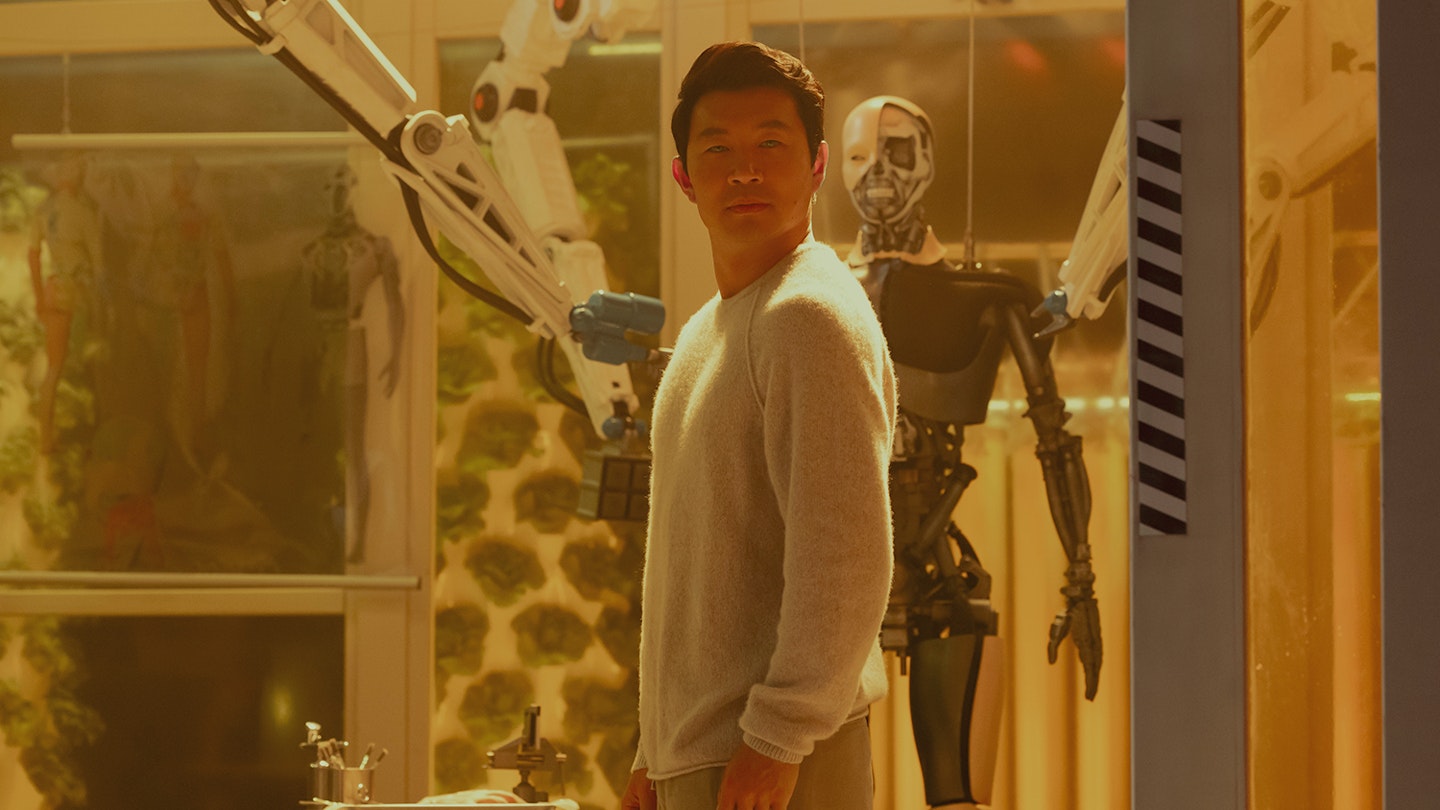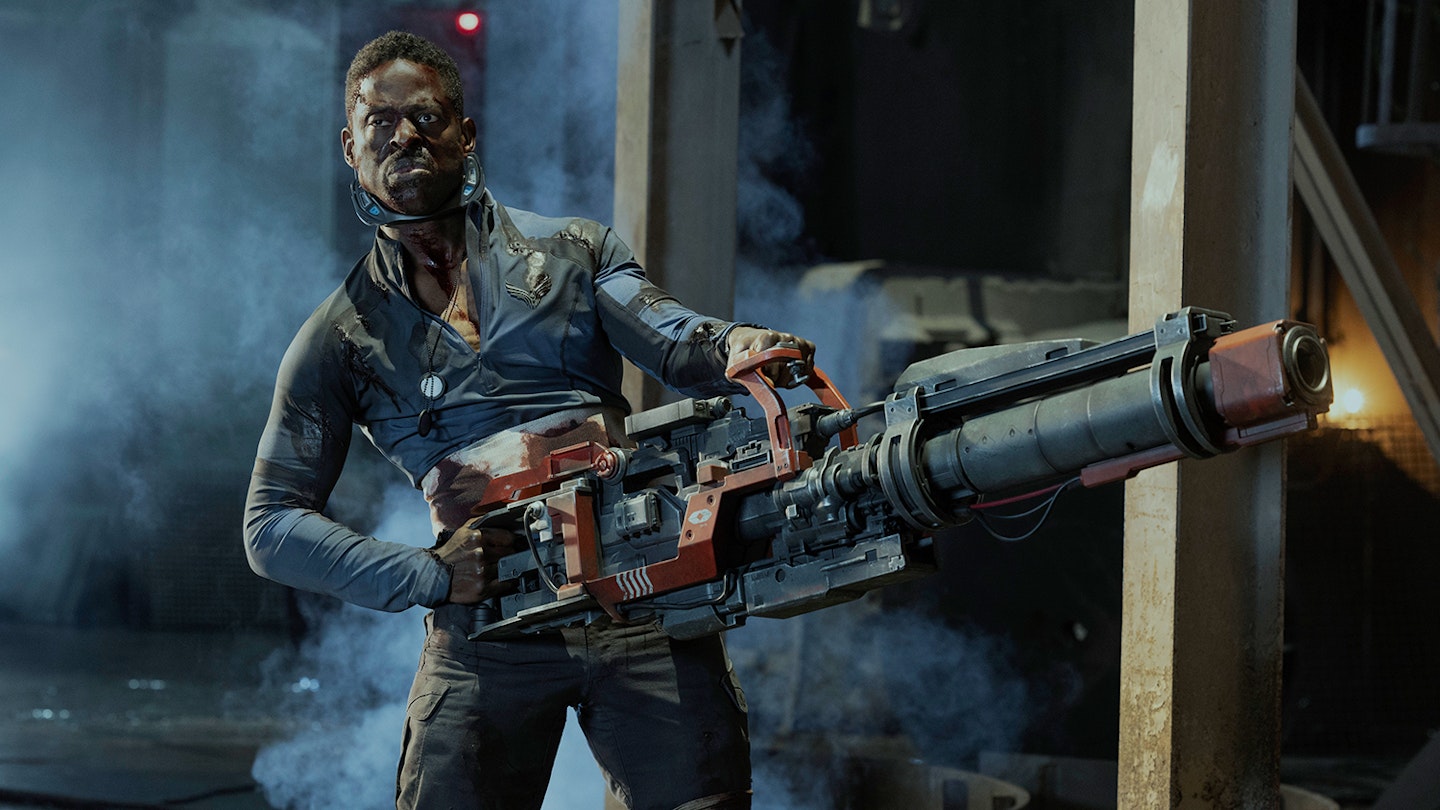These days, any original sci-fi film is worth cheering for; one boasting genuine movie stars is even more exciting. Sadly, this Brad Peyton effort can’t deliver on its promise. The Rampage director benefits from some cool imagery and a great cast — in particular a committed lead performance from Jennifer Lopez — but wastes it on predictable character beats and a pat trauma narrative.

It’s all very sci-fi-looking: lots of flying cars and blue glowy things. No surprise given this begs, borrows and steals from classic films and games of the genre. An opening raid to capture the rebel AI known as Casca (Abraham Popoola) is heavily indebted to the attack on Trinity in The Matrix, while a computer voice asking, “Do you wish to continue?” as someone watches the news is surely meant to evoke Starship Troopers. The plot echoes the 2004 I, Robot: Lopez’s AI-sceptic Atlas must overcome her painful past to unite with an artificial intelligence and save the day from an evil robot (Simu Liu).
Lopez is committed and manages to sell some objectively ridiculous scenes.
A considerable chunk of time involves Atlas adapting to an interactive mech suit — and its AI companion Smith (Gregory James Cohan) — which she must use to navigate a hostile planet where the big bad is hanging out. This section has lots of extremely relatable moments of tech frustration: the endless pressure to sign up for services you don’t want, the patronising user manual, the creepily intrusive data-mining. It’s funny and horrifying at the same time: surely by the time we have flying cars and an LA that looks like Singapore we should have moved past this?

The premise, frustratingly, leaves the physically gifted Lopez essentially locked in a box for ages; Liu is similarly confined to lurk menacingly and rely on eerie contact lenses for impact. Still, there are entertaining moments as Smith develops sarcasm and Atlas gets to grips with action, though they can’t make up for the strongly conservative narrative. For a film about robots this is remarkably heavy on God-and-country motifs. There’s also some muddy exposition that smacks of rewrites, and rushed VFX that the film can’t afford. Anything with mech suits and a first-person-shooter scene risks looking gamey to begin with; you can’t shortchange the VFX as well.
In the end, there’s a little too much woo-woo ‘become one with the machine’ talk for this to really sing; it’s a metaphor for overcoming trauma but also deathly literal. Lopez is committed and manages to sell some objectively ridiculous scenes, but the narrative can’t get past its own obsession with therapy-speak, when what it really needs is a raft of old-fashioned one-liners instead.
